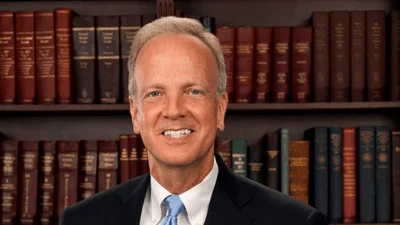Attorney General Merrick Garland | https://encrypted-tbn1.gstatic.com/licensed-image?q=tbn:ANd9GcTkcFy5nwcUphW-SfsQQDm36eOev1yl-7-16Fp2PlTakLl1HsKwRRZXcSoH-cCqptJN4KRRDbRhLdldrLs
Nostrum Laboratories has reached a settlement with the Department of Justice for up to $50 million to resolve allegations of underpaying rebates owed under the Medicaid drug rebate program. The company will pay a minimum of $3,825,000 and up to $50 million if certain financial contingencies are met.
According to the Medicaid Drug Rebate Program, drug manufacturers are required to pay quarterly rebates to state Medicaid programs in exchange for coverage of their drugs. The Department of Justice press release states that inflation-based rebates are required to be paid by the manufacturers to protect the Medicaid program from drug price increases that exceed inflation.
According to the Medicaid Drug Rebate Program, drug manufacturers are required to pay quarterly rebates to state Medicaid programs in exchange from coverage of Medicaid on manufacture's drugs. The Department of Justice press release states that Inflation-based rebates are required to be paid by the manufacturers, which are used to insulate the Medicaid program from drug price increases that can outpace inflation. "The department is committed to ensuring that pharmaceutical manufacturers meet their obligations to taxpayer funded health care programs, which support elderly and vulnerable populations," said Principal Deputy Assistant Attorney General Brian M. Boynton, who is head of the Justice Department's Civil Division. "As this settlement demonstrates, the department will hold accountable those who knowingly fail to satisfy these obligations."
As part of the settlement, Nostrum and its CEO, Nirmal Mulye, admitted to certain facts. Nostrum acquired Nitro OS from another manufacturer in December 2015 and continued to market the product with its preexisting FDA approval. In January 2018, Nostrum temporarily halted manufacturing Nitro OS due to the product's lead levels not complying with updated FDA guidance. After modifying the quantities of two inactive ingredients to reduce overall lead levels, Nostrum resumed manufacturing and marketing Nitro OS as a reformulation. However, Nostrum did not make any changes to the active ingredients, dosage form, or strength of the drug. Nostrum maintains that it is legal to market this version of Nitro OS under the same FDA approval as the pre-2018 version.
After relaunching Nitro OS in August 2018, Nostrum increased its price from $474.75 to $2,392.32 per bottle. This significant price increase triggered higher Medicaid Drug Rebate invoices from state Medicaid programs due to the inflation-based rebate.
Nirmal Mulye, company CEO claimed that he had the right to increase the price of the Nitro OS by over 400% due to the "moral requirement to sell the product at the highest price, according to a news article posted on the Financial Times. Nitro OS is an antibiotic that is used to treat bladder infections that comes in tablet and liquid forms. The drug appears on the World Health Organization's list of essential medicines. "The point here is the only other choice is the brand at the higher price. It is still saving regardless of whether it is a big one or not,"" said Mr. Mulye. Mulye claims that he had the right to raise the price of the product to reward shareholders, and defended the actions of Martin Shkreli, who in 2015 raised the price of an Aids and cancer drug from $13.50 to $750 per tablet. Scott Gottlieb, FDA commissioner at the time, said "There's no moral imperative to price gouge and take advantage of patients. FDA will continue to promote competition so speculators and those with no regard to public health consequences can't take advantage of patients who need medicine."
The settlement with the Department of Justice brings an end to the allegations against Nostrum Laboratories regarding underpaid rebates under the Medicaid drug rebate program. The company will pay a significant sum to resolve the matter and ensure compliance with its obligations to taxpayer-funded healthcare programs.









